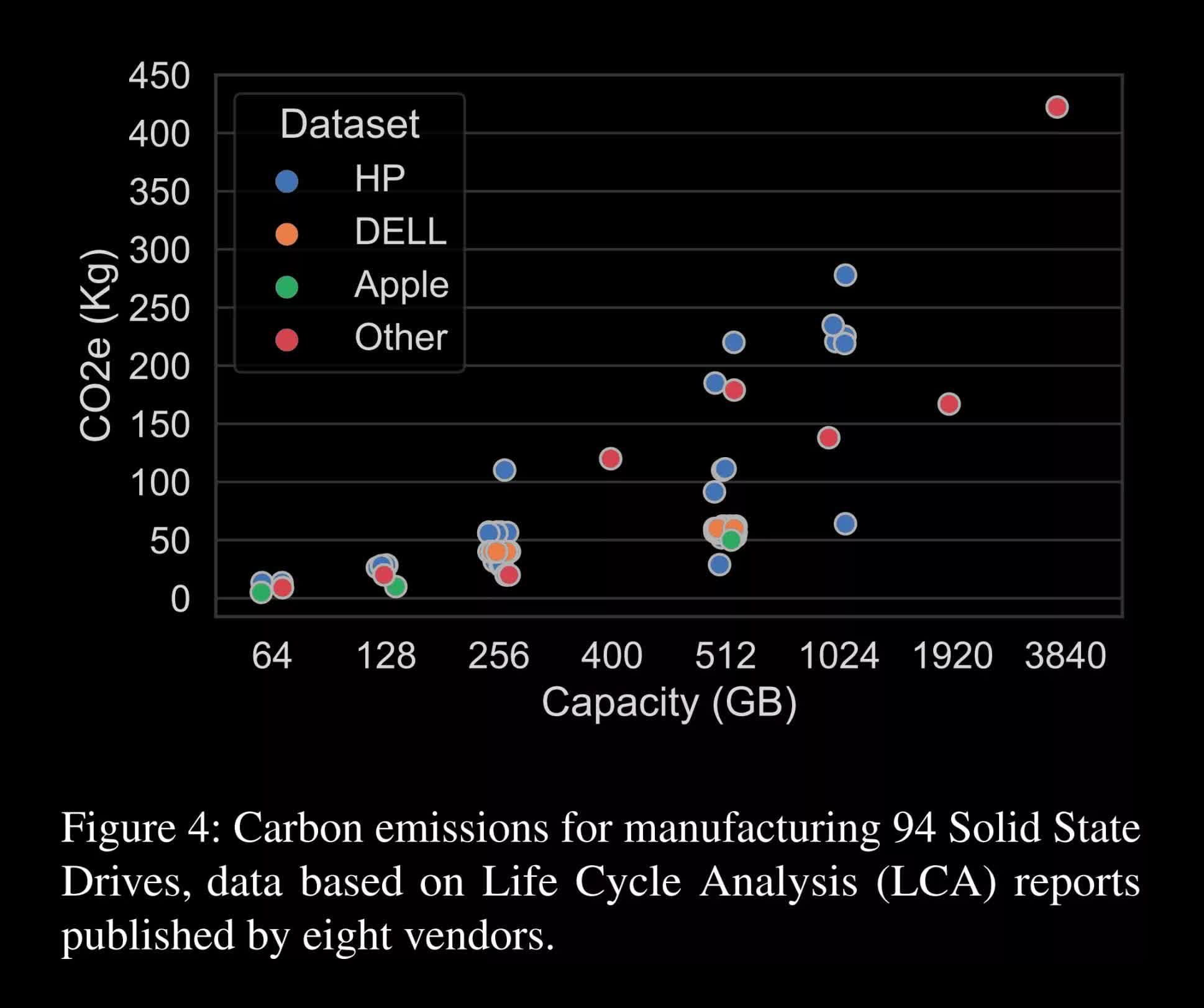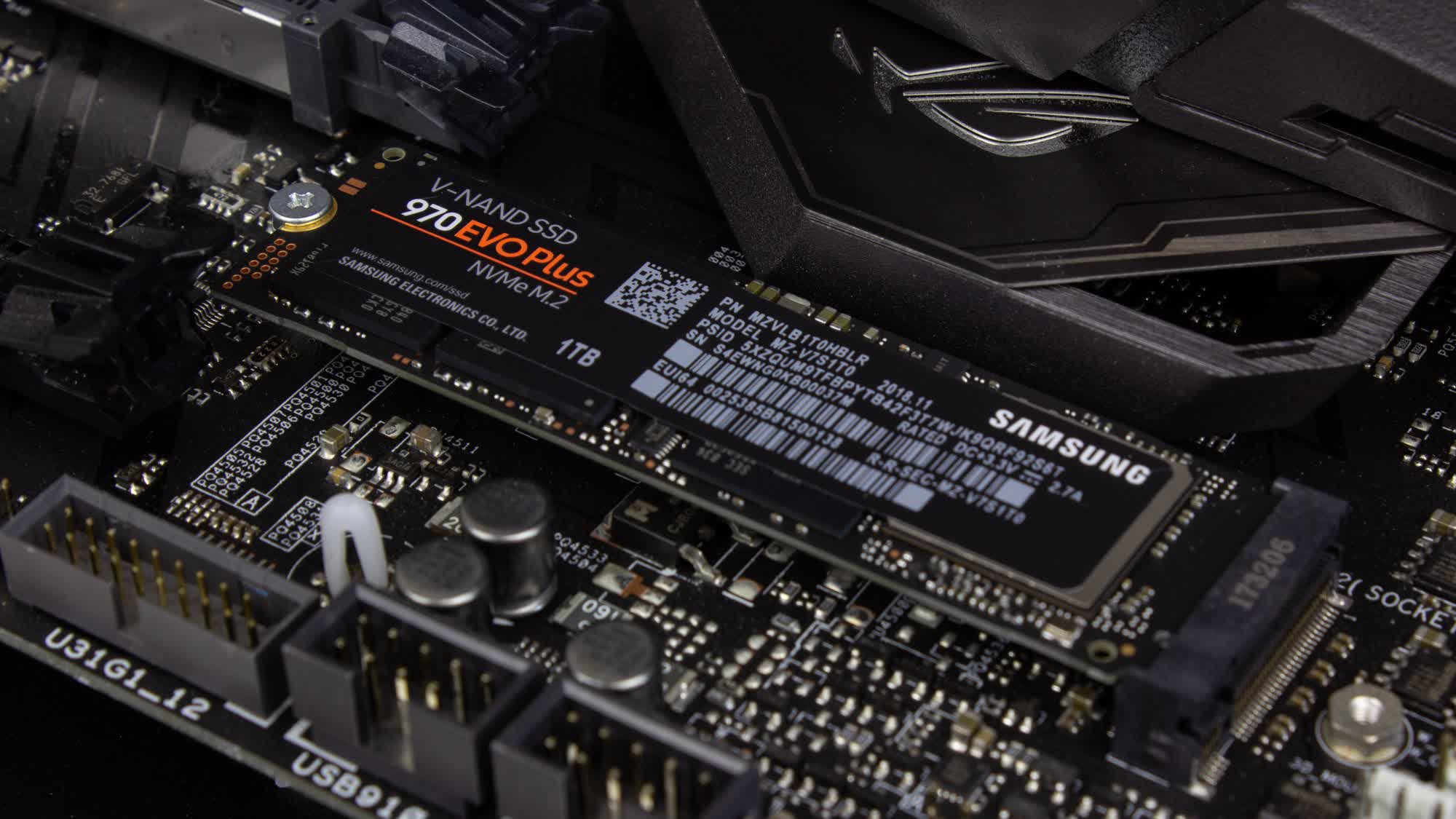In context: SSDs are becoming increasingly indispensable due to their speed advantages over standard disk drives, but a new study alleges SSDs cause significantly higher carbon emissions than HDDs despite being more energy efficient. However, different use case scenarios may change that picture.
Researchers from the University of Wisconsin-Madison and the University of British Columbia recently published a study alleging that solid state drives can lead to double the carbon emissions of hard disk drives (HDDs). The study analyzes the carbon impact of different devices and components across their lifespans.
The researchers admit that operating SSDs consumes less energy than HDDs, but claim that manufacturing SSDs results in far higher emissions. Most of an SSD's carbon emissions have already occurred before anyone ever starts using it, assuming the manufacturing processes still rely primarily on fossil fuels.
The study argues SSDs have the highest emissions of any component in systems incorporating them, comprising 38 percent of a PC's total emissions. In comparison, an HDD might be responsible for 9 percent of a system's emissions, a GPU 11 percent, a CPU 4 percent, a motherboard 17 percent, the RAM 9 percent, a PSU 4 percent, and a chassis 6 percent.
That percentage presumes a 512GB SSD, but interestingly, it's claimed that SSDs' carbon cost during manufacturing increases linearly with capacity...

Comparing the theoretical emissions of both kinds of storage from manufacture to end-of-life, the study concludes that over a 5 to 10-year period, an HDD will use more energy than an SSD, but less than went into building the SSD.
The researchers assumed 20 percent active cycles and 80 idle cycles across the lives of both storage mediums. It's possible that under similar workloads, an SSD's speed would lead to fewer active cycles, increasing its energy efficiency lead over an HDD.
The study suggests methods for reducing emissions from storage. Designing longer-lasting SSDs is an obvious solution, as it could lead to fewer being made. Recycling and reusing flash storage (as well as other hardware components) also helps the environment.
Furthermore, SSDs aren't always the best storage for every situation. HDDs are still significantly cheaper per gigabyte, which is why it's smart for users and companies to employ them for cold storage (keeping a lot of data you don't use often), while reserving SSDs for frequently-used files. Energy concerns are just one more advantage of the practice.
